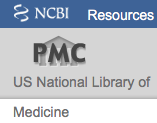Camila Panini Valcanaia, Júlia Beatriz Berkenbrock Masote, Heloísa Fontana Sommer, Scarlet Schiquet, Bruna Padilha, Larissa Krepsky, Camila Jeriane Paganelli, Pâmela Pacassa Borges, Letícia Jacobi Danielli, Miriam Anders Apel, Krissie Daian Soares, Sérgio Althoff, Michele Debiase Alberton, Tatiani Karini Rensi Botelho, Alessandro Guedes, Caio Maurício Mendes de Cordova
Abstract
Few studies were performed on the volatile components’ properties of propolis from native Brazilian stingless bees. This work sought to extract, chemically characterize, and evaluate of the antimicrobial properties of volatile oils from propolis of the stingless bees Melipona quadrifasciata quadrifasciata (MQ) and Tetragonisca angustula (TA). The volatile oils from the pulverized propolis samples were obtained in a Clevenger apparatus and characterized by gas chromatography coupled to mass spectrometry (GC/MS) and to flame ionization detector (GC-FID). All samples showed promising activity against Mycoplasma pneumoniae, with MICs from 103 to 224 μg mL-1 , nonetheless, they were less active against cell walled bacteria. Activity against Candida species was moderate, but one MQ sample showed a MIC value of 103 μg mL-1 against C. tropicallis. Oils’ fractionation showed no improvement in antibacterial activity. The promising antibacterial effect against this microorganism is likely related to the synergism between the components of the volatile oils.
* THESE STATEMENTS HAVE NOT BEEN EVALUATED BY THE FOOD AND DRUG ADMINISTRATION. THIS IS NOT INTENDED TO DIAGNOSE, TREAT CURE OR PREVENT ANY DISEASE.
